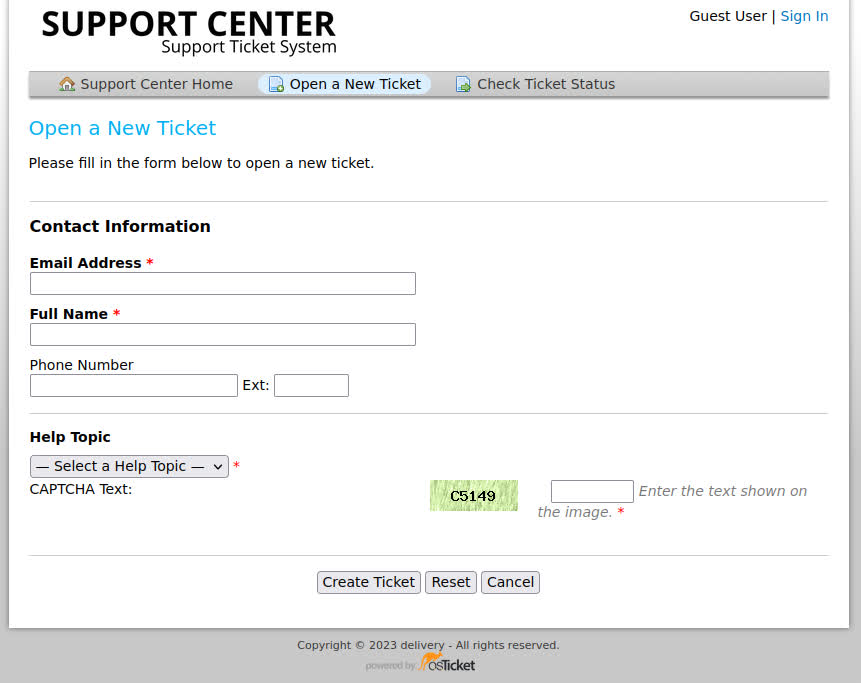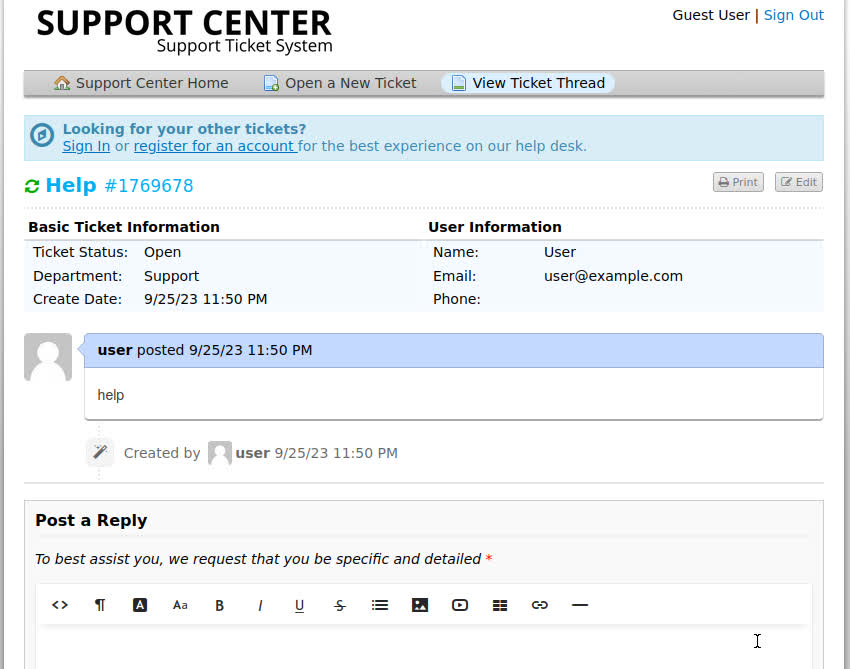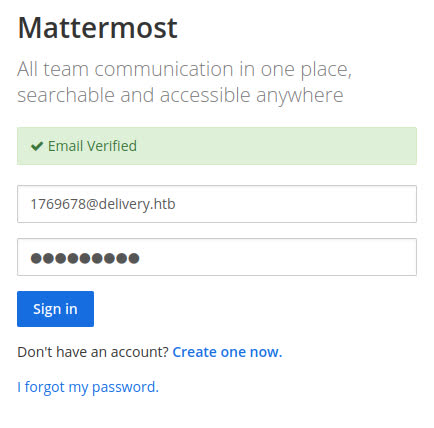Hack The Box "Delivery" Writeup
Delivery is a retired easy Linux box by ippsec, available on Hack The Box. It was released on January 9th, 2021.
Scanning
I began by scanning the machine:
$ nmap 10.10.10.222 -p- -O
...
PORT STATE SERVICE
22/tcp open ssh
80/tcp open http
8065/tcp open unknown
...unknown-linux-gnu...
Let’s run a more intensive scan on the open ports:
$ nmap -p 22,80,8065 -sV -sC -T4
PORT STATE SERVICE VERSION
22/tcp open ssh OpenSSH 7.9p1 Debian 10+deb10u2 (protocol 2.0)
| ssh-hostkey:
| 2048 9c40fa859b01acac0ebc0c19518aee27 (RSA)
| 256 5a0cc03b9b76552e6ec4f4b95d761709 (ECDSA)
|_ 256 b79df7489da2f27630fd42d3353a808c (ED25519)
80/tcp open http nginx 1.14.2
|_http-server-header: nginx/1.14.2
|_http-title: Welcome
8065/tcp open unknown
...<title>Mattermost</title>
We have and SSH server on port 22, a webserver on port 80, and a Mattermost server on port 8086 (also a web) server.
Enumerating SSH
There are no publicly available exploits for OpenSSH 7.9p1 at the time of this writing. Password authentication is enabled on the server.
Enuerating NGINX
Let’s connect to the webserver in a browser:

It’s a pretty standard framework homepage. Let’s check out
the links at the bottom of the page. One leads to
delivery.htb/#contact, and the other
helpdesk.delivery.htb. The contact page is similar, though
we’re given some additional interesting information:
For unregistered users, please use our HelpDesk to get in touch with our team. Once you have an @delivery.htb email address, you’ll be able to have access to our MatterMost server.
This confirms that Mattermost is running on port 8065. Let’s check out the helpdesk:

After submitting a ticket, we are presented with a receipt, where we are given a ticket number (1769678) and an email to which we can send further information (1769678@delivery.htb). We can also check our ticket status on the “Check Ticket Status” page:

Enumerating Mattermost
Now that we have an email, we can log in to Mattermost,
according to the website’s contact page,
http://delivery.htb:8065. I tried a few passwords using
“1769678@delivery.htb” as the username, but none of them
worked. Next, I tried creating an account with the email
instead. Sure enough, it was accepted, but then the
registration flow prompted me to confirm the email:

Remember that we used the ticked-provided email to register. Let’s check the ticket status page and see if we can access the confirmation email there:

After following the activation link, we can now log in to the server…

Pwning User
…and view the internal communications!
root 2:29 PM @developers Please update theme to the OSTicket before we go live. Credentials to the server are maildeliverer:Youve_G0t_Mail! Also please create a program to help us stop re-using the same passwords everywhere…. Especially those that are a variant of “PleaseSubscribe!”
root 3:58 PM PleaseSubscribe! may not be in RockYou but if any hacker manages to get our hashes, they can use hashcat rules to easily crack all variations of common words or phrases.
We’re given a username and password combo, and some clues about how to proceed with the box. You’ll see later I ignored these clues and exploited a different vulnerability.
We can log in to the server with the provided username and password:
$ ssh maildeliverer@delivery.htb
maildeliverer@delivery.htb's password: Youve_G0t_Mail!
Linux Delivery 4.19.0-13-amd64 #1 SMP Debian 4.19.160-2 (2020-11-28) x86_64
...
maildeliverer@Delivery:~$
Fantastic! We can now retrieve the flag from user.txt.
Pwning Root
Let’s run some privilege escalation scripts. PEASS-ng is very popular, but I prefer LSE. I cloned the repository to my machine, built in CVE scanning with the provided tool, and used SCP to transfer the script to the target box.
I ran the script and collected the most interesting findings:
[!] sof080 Can we write to a gpg-agent socket?........... yes!
[!] cve-2021-4034 Checking for PwnKit vulnerability...... yes!
Vulnerable! polkit version: 0.105-25
[!] cve-2023-22809 Sudoedit bypass in Sudo <= 1.9.12p1... yes!
Vulnerable! sudo version: 1.8.27-1+deb10u3
I first looked into the sudoedit bypass, but as the
maildeliverer user was not a sudoer, this exploit would
not work.
PwnKit, however, proved to be fruitful. I downloaded and built a self contained exploit from the PwnKit repository and transferred it to the target via SCP. I ran it on the target and I was escalated to root without a hitch!
PwnKit works by exploiting a flaw of the PolKit pkexec program, in which the number of arguments is not validated, resulting in execution of environment variables1.
With root access, I could finally read root.txt and finish
the box.
RHSB-2022-001 Polkit Privilege Escalation - (CVE-2021-4034), https://access.redhat.com/security/vulnerabilities/RHSB-2022-001 ↩︎